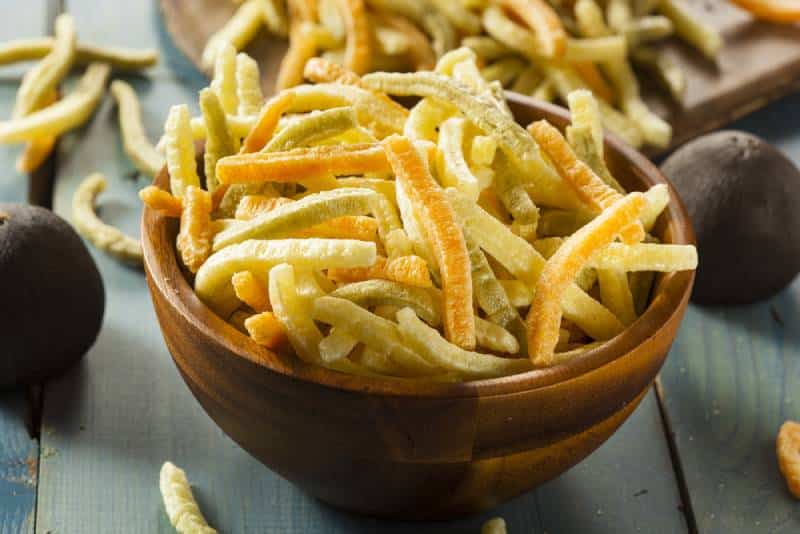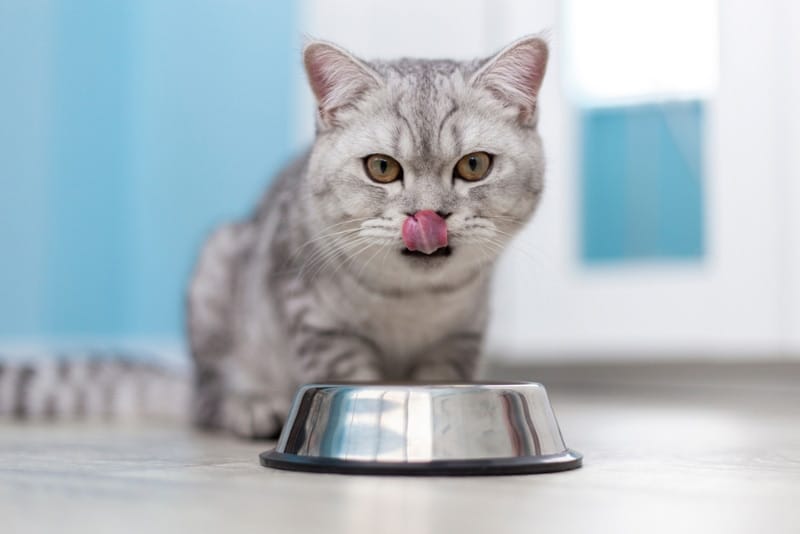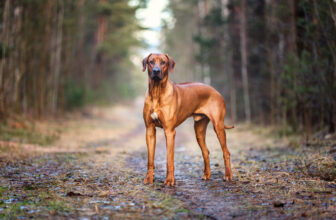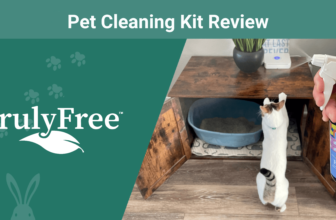
[ad_1]
One snack hailed as an ideal treat for humans is the Veggie Straw. It is claimed that these crispy snacks are a great way of upping our vegetable and nutritional intake, and who can blame us for wanting to consume healthy veggies in a super tasty way? It makes logical sense, if this is the case, that many pet parents would therefore want to offer these to their cat as a healthy treat also.
If you are a Veggie Straw fan, you may likely find your cat wanting to munch on these chips too, and find yourself wondering if it is safe to share these with your furry friend. With their incredible sense of smell, cats can easily sniff out something tasty they wish to eat, but sadly, and often to their disappointment, Veggie Straws are not a good option to give to your cat.
What Are Veggie Straws?
Veggie Straws are a type of chip and a widely available snack bought in packets from stores. These are marketed and pushed as a healthy snack or treat for humans due to being a fun and tasty way to add healthy vegetables into our diets, and a lower fat content than the average potato chip. When we look at the actual contents of these products, however, we can rightly assume that these claims are a little far-fetched.
Ingredients of “Sea Salt” Veggie Straws
- Potato flour
- Potato starch
- Corn starch
- Tomato paste
- Spinach powder
- Salt
- Sugar
- Beetroot powder
- Turmeric
- Sea salt
- Oil (canola, sunflower, and/or safflower oil)
The sea salt flavor is the most basic flavor containing the fewest ingredients. Other flavors on offer include Sour Cream and Onion, BBQ, Cheese, Zesty Ranch, Screamin’ Hot and Cinnamon Apple. Many of these other flavors contain onion and garlic powder, both of which are toxic to cats. They also include cheese and milk, which many cats are intolerant to.
As we can see, Veggie Straws are far from packed with nutrition for our cats, and many flavors also contain toxic ingredients, so they should not be treated as a safe snack option for your cat.
If you have fed your cat a Veggie Straw, check the packet carefully to ensure there is no onion or garlic in the ingredients. If either of these ingredients are listed, contact your veterinarian immediately for advice.

Can My Cat Eat Veggie Straws?
Veggie Straws are created from potatoes and are a form of potato chip. The Sea Salt and the Cinnamon Apple flavors contain no toxic ingredients, but they provide very little nutritional value or benefit either. All of the other flavors on offer do contain toxic ingredients, so regardless of how much your furry friend persists, they must not be offered to your cat. The milk and cheese contained in many of the flavors may cause gastro-intestinal upset as many cats are dairy intolerant.
These products are high in sodium (salt), starches, sugar, and oils. They also tend to be higher in fat and calories than many other feline-safe treats. Importantly, they contain less than 1g of protein per 28g serving, and cats require a protein-rich diet. All in all, the balance of nutrition in Veggie Straws is far from ideal for a cat and can cause problems for your cat’s weight and mobility if fed regularly over a long period of time.
It is perfectly fine and acceptable to want to give your cat a treat. This pleasant act helps to increase the bond between the two of you, so it’s a great thing to do as long as you choose a safe food. However, there are far better, non-toxic and healthier food options to choose from than Veggie Straws, and given the choice of both ready-made feline treats plus the numerous options of safe human food, there is no need to give Veggie Straws to your cat. Choose an alternative instead!

What Treats Can I Feed Instead of Veggie Straws?
There are many store-bought products on the market to give your cat as a treat, as well as plenty of human food that is both safe and healthy. Try a selection from the list below, although not all at once! Avoid any that your cat is allergic or intolerant to. Remember that treats for your cat should only make up around 10% of their daily calorie intake.
Always check with your veterinarian that the food you wish to offer is safe for your cat and their individual health status.
Safe Cat Treats
- Treats bought from stores, marketed for cats
- Plain grilled or cooked chicken
- Plain cooked turkey
- Cooked fish, especially salmon or oily fish
- Canned tuna in water
- Eggs
- Bananas
- Blueberries
What Is a Healthy Diet for Cats?

Cats are known as obligate carnivores. This means they must get their protein from animal meat, rather than plant sources. They have a few extra nutritional requirements when compared to dogs, humans, and other species, which are:
- Taurine – A particular type of essential amino acid found only in protein from animal meat.
- Arachidonic Acid – An essential fatty acid derived from animal origin.
- Arginine – An essential amino acid derived from animal meat.
- Vitamins A, D and Niacin – Cats can’t sufficiently synthesize these vitamins so they must get them from animal tissues.
For this reason, cats must eat animal meat and cannot be fed a vegetarian or vegan diet. Nor can these extra necessary nutrients be added as a supplement. Failure to provide your cat with taurine, arginine and arachidonic acid results in serious health issues, potentially leading to their death.
Cats also require a much lower level of carbohydrates than humans and dogs and derive most of their energy from proteins and fats.
Their specific dietary requirements mean cats should be fed high-quality, age appropriate complete cat food to ensure they get all the nutrition they need to live long, healthy lives.

Conclusion
There are plenty of safe foods that cats can eat as an extra snack or treat on top of their daily diet. While the number of snacks offered needs to be limited, many tasty foods can still be enjoyed by your cat while still providing quality, safe and healthy options to them. Veggie Straws are not a safe or nutritious treat choice, so should be avoided.
If you have already been feeding your cat Veggie Straws and are concerned about the effects on their health, then have a chat with your veterinarian or veterinary nutritionist who can best advise on the next steps.
Featured Image Credit: Le Do, Shutterstock






